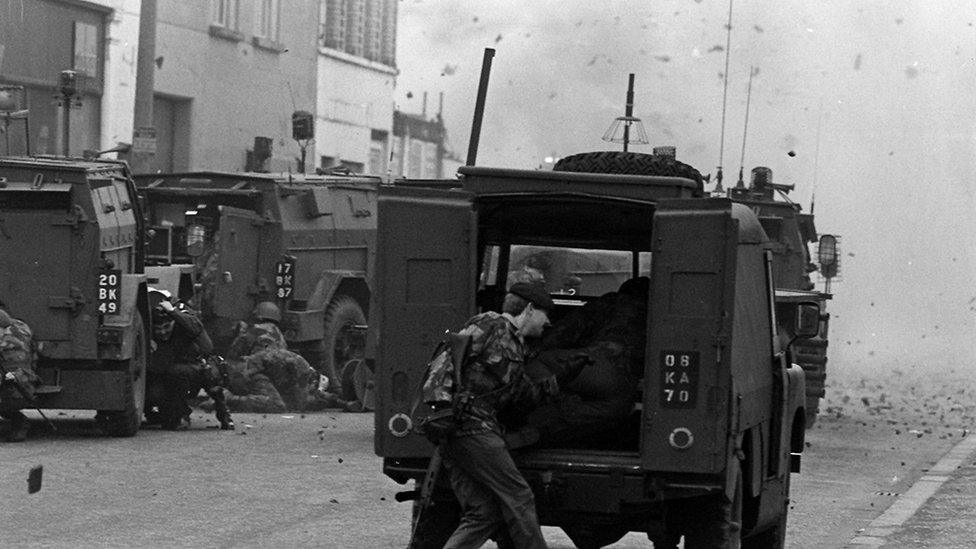Troubles Bill: Council of Europe urges UK government to reconsider
- Published
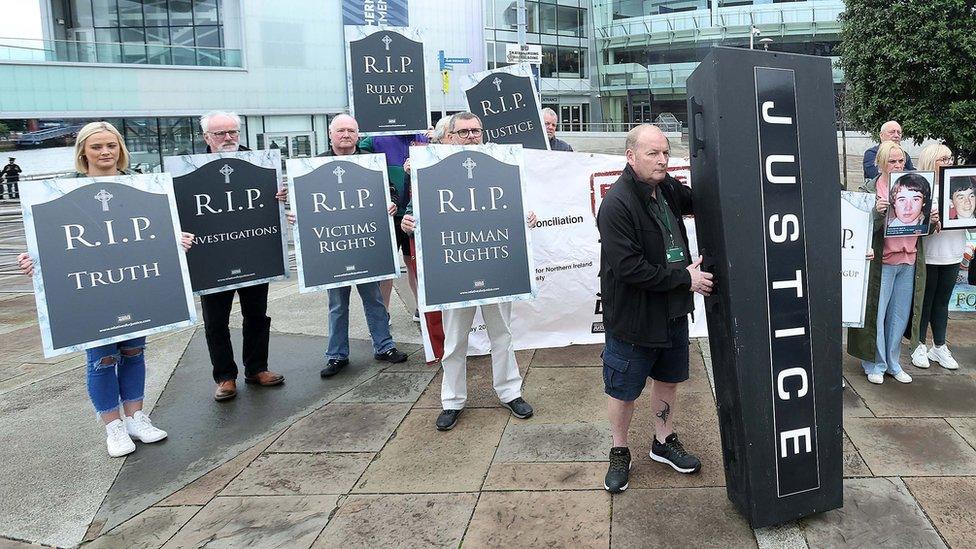
People in Belfast protested against the controversial legislation before it became law
The European human rights watchdog has expressed "serious concern" over elements of legislation that changes how killings during the Troubles are investigated.
The Troubles legacy bill became law earlier this week, after it passed its final stages in parliament.
But the Council of Europe has "strongly urged" the UK government to reconsider.
Downing Street has said the measures will help reconciliation.
The UK government has said the Troubles legacy bill will give the greatest number of bereaved families the best opportunity to find out the truth about killings.
But the Council of Europe has now called on Downing Street to consider scrapping a provision to grant a conditional amnesty to suspects who provide information to a new commission.
Almost all victims' groups in Northern Ireland are opposed to the bill.
The new law has also been criticised by all the main political parties in Northern Ireland, the Irish government and opposition parties in Westminster.
Human rights law
The Council of Europe is made up of 46 member states, including the UK.
It monitors how countries comply with the European Convention on Human Rights.
The council's Committee of Ministers focuses on the implementation of judgements by the European Court of Human Rights, which makes rulings based on the convention.
The committee has met to consider judgements relating to a number of deaths in the 1980s and 1990s.
The killings were carried out by the security forces, or gave rise to allegations that members of state forces colluded with paramilitaries.
The discussions focused on Article 2 of the convention, which deals with the right to life and the duty of member states to carry out effective investigations into deaths.
The legislation sets up the Independent Commission for Reconciliation and Information Recovery (ICRIR), which will take over all investigations into killings from the Northern Ireland conflict, known as the Troubles.
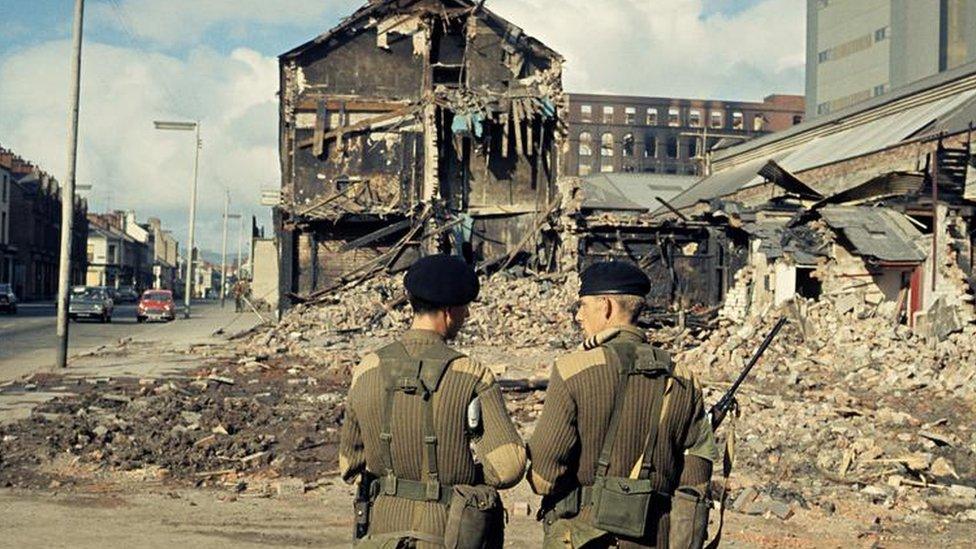
The Troubles was a period of conflict which lasted for 30 years and cost the lives of more than 3,500 people
More than 3,500 people died in violence from 1968 until the Good Friday Peace Agreement in 1998.
Most killings remain unsolved.
The committee said it "noted with interest" amendments to the bill, which had been made since it last examined the issues.
It acknowledged that the changes "strengthened the participation of the next-of-kin of victims and public scrutiny in the work of the ICRIR".
But it said that "a number of issues" relating to independence, disclosure and the initiation of investigations by the ICRIR "remain uncertain".
The committee re-iterated criticism of the measure to give immunity from prosecution to former paramilitaries and members of the security forces who co-operate with the ICRIR.
The committee said the scheme "risks breaching obligations under Article 2 of the European Convention to prosecute and punish serious grave breaches of human rights".
And it "strongly urged the authorities to consider repealing the immunity provisions".
'Finely-balanced choices'
The Council of Europe also expressed "deep regret" at the plan to stop inquests linked to the Troubles.
It said the UK authorities should consider "taking additional practical measures to ensure that as many inquests as possible can conclude before 1 May 2024", which is the date when the ICRIR is scheduled to fully begin work.
The council also called for provisions to ensure that "all the preparatory work done in pending (inquest) cases is not lost in any transfer to the ICRIR".
When the legislation was signed into law by the King earlier this week, the Northern Ireland Secretary Chris Heaton-Harris said it contained "finely balanced political and moral choices".
He said the new process "presents us all with a real opportunity to deliver greater information, accountability and acknowledgement to victims and families, moving away from established mechanisms that have left far too many empty-handed".
Mr Heaton-Harris expressed confidence that the legislation complied with the UK's international obligations.
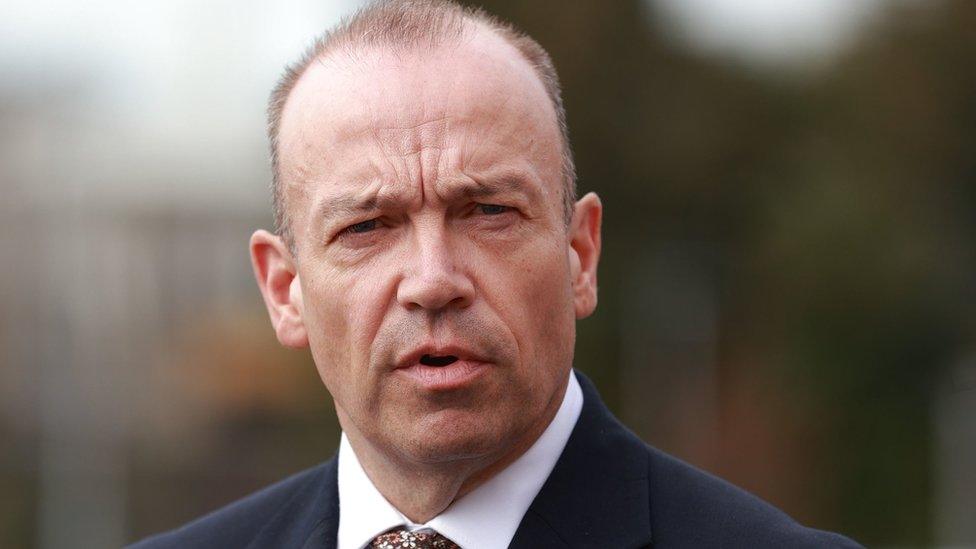
Chris Heaton-Harris said the government "aims to deliver" on its pledge to deliver better outcomes for those "most affected" by the Troubles
Government sources said the Council of Europe had recognised that the legislation had been significantly strengthened through engagement with victims.
They also said the council had acknowledged the ICRIR would require time to establish procedures that would be relevant to how the commission worked in practice, and to compliance with the convention.
Sixteen victims and bereaved relatives have lodged legal challenges against the law at the High Court in Belfast.
The Irish government is considering whether to take a case against the UK at the European Court of Human Rights.
Ministers in Dublin have said they will make a decision in the next few weeks, after they receive legal advice.
Related topics
- Published12 September 2023

- Published5 September 2023
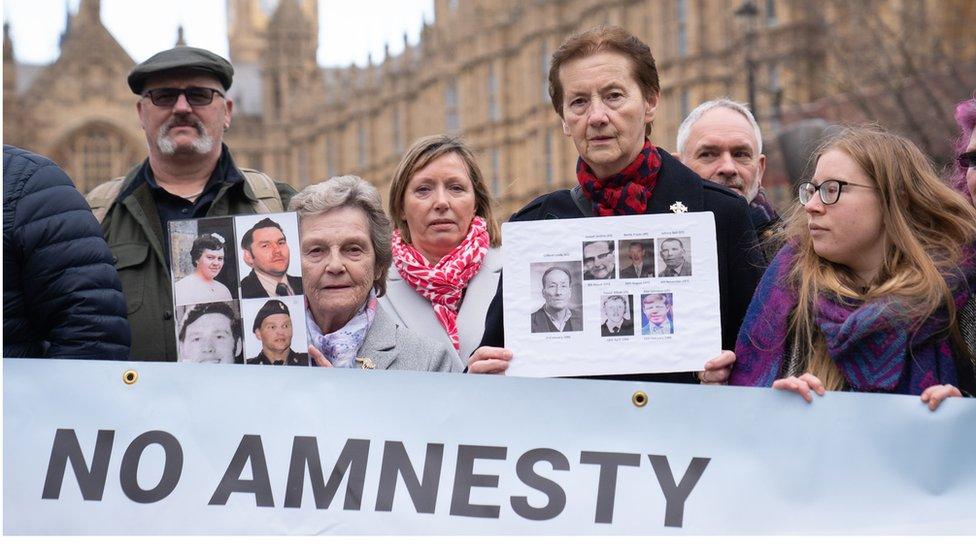
- Published19 September 2023
